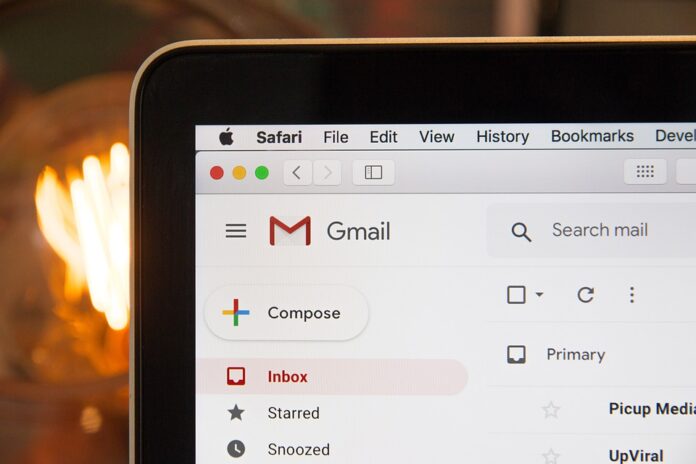Here’s everything you need to know about email list hygiene and how to keep yours shipshape. Email list hygiene is a process of maintaining cleanliness for email lists. This includes deleting or correcting any inaccurate or outdated emails. Keeping an up-to-date and accurate email list is crucial for successful email marketing.
Email hygiene refers to regularly removing inactive email subscribers from your future marketing campaigns, and only emailing people who are likely to be interested in your messages. This also helps to avoid your emails being marked as spam.
ESPs are constantly improving and adapting to what users want to see in their inboxes. This means that a clean list of subscribers is essential to getting your emails delivered. ESPs analyze the emails you’re sending and the engagement your recipients have with those messages to ensure successful delivery.
An ESP is a company that provides email service to customers. They use algorithms to decide where to place emails in someone’s inbox. They consider factors such as whether the person has opened or clicked on the email, whether they have unsubscribed, or whether they have been inactive for a long period of time. It’s important to keep track of how engaged your subscribers are over time, because even the most engaged ones can lose interest. If someone is not interested in your emails anymore, they can become more of a hindrance than a help.
This article covers healthy email hygiene habits that will keep your list in good shape, help your small business avoid being flagged as spam, and make sure your marketing emails get delivered and opened. Keap is one example of software that can take your emailing to the next level.
First things first…
The email terminology every small business owner should get familiar with
The worst possible thing that can happen to your email is that it gets marked as spam.
How can you tell if an email is likely to be get marked as spam?
It’s important to have a healthy email list because if your subscribers are engaged, your emails are less likely to be marked as spam.
Engagement
To engage with your email means to open it and click on at least one link.
ESPs consider “engagement” as one or more of the following:
These are email subscribers who have recently joined your marketing list and may be interested in your company’s emails. However, some of these addresses may be fake or invalid, so it is important to track engagement and remove those addresses from your list. Another way to make sure subscribers are legitimate is to use the double opt-in method, where they confirm their subscription via email.
Purchasers or subscribers who were billed within the last 120 days are more likely to be engaged with your email marketing than those who were not billed. However, just because a subscriber has a valid credit card on file does not mean they gave you a valid email address. Therefore, it is important to track engagement to ensure that you are communicating with those who have explicit permission.
You should monitor how often your subscribers open and click on links in your emails over a 120 day period. Clicks are a more accurate measure of engagement than opens because if a subscriber has their email program set to not display images when they open an email, or if they view the email in a preview pane, your email service provider will not record the open. To keep your subscribers engaged, you should send them targeted emails with a call to action.
Warm email list
A warm email list includes subscribers who have given you permission to email them, been contacted recently, and are engaging with your emails regularly.
Many small businesses struggle with this issue.
If you’ve placed a sign-up box on your website and collected email addresses but haven’t been actively engaging with your list, you may have a problem. Your list may be growing, but if engagement is low then people aren’t interested in what you have to say. Try reaching out to your subscribers and see if you can get them more interested in what you have to offer.
This situation is not a good use of your time and can actually damage your relationship with your email service provider and get you blacklisted. Keeping your email list warm should be a top priority for your business.
The way that your ESP views your emails is very important. The metrics that they use to determine inbox placement is something that you should pay close attention to. Keeping your most active and engaged leads in your database should be a top priority.
The tagging functionality in Keap allows you to track which leads are interested and which ones are not. This information can help you decide whether to remove someone from your list or not.
Cold email list
An email list that hasn’t been contacted in four or more months can be considered a cold email list.
Do not send email communications to the subscribers on this list. Failing to communicate with them after they have opted in is like getting a phone number from someone you are interested in and never calling or texting them. It is bad etiquette and will not be received well by your subscribers or your email service provider.
5 signs that it’s time to clean your email list
It’s time to do some eCommerce email list hygiene when you notice any of the following five warning signs.
1. Falling open and click rates
One of the most noticeable changes is a decline in the number of people who are opening emails and clicking on the links.
How important email open rates are varies by industry, but what matters most is whether those rates are staying the same, getting better, or getting worse.
A downward trend is not indicative of success. Open and click rates should not be the only metric you consider.
2. Rising unsubscribe rates
If your unsubscribe rate goes up, it’s a sign that people don’t want your emails.
The average unsubscribe rate for most email lists is between 0.2 percent and 0.5 percent per email sent, so if yours is in this range, there’s no cause for concern. If your unsubscribe rate is above 0.5 percent, you should look at cleaning your list to get back into the normal range.
Whether you keep them or not, you will lose subscribers, so it is better to get rid of them before they have a chance to leave.
3. A high bounce rate
The email bounce report shows which emails were not delivered because the email address was wrong, the mailbox was full, or for other technical reasons.
A high bounce rate will affect your open and click rates and will ultimately hurt your email deliverability.
4. More spam complaints
Spam complaints are worth paying attention to. Your email service provider will let you know when you get one, and you want to keep the number low (we’ll explain why in a minute).
Although an increase in spam complaints may not necessarily mean that subscribers perceive you as a spammer, it is still important to take measures to reduce the number of complaints.
The primary reason that email list hygiene is important is because many people will simply mark an unwanted email as spam rather than unsubscribe from the mailing list. According to Litmus, this impacts email deliverability because 43% of subscribers do this.
5. Poor deliverability
Deliverability is the ability for emails to be received by the intended recipients.
If too many people mark your emails as spam, your email providers will reject your emails before they reach the intended recipients. A deliverability rate of over 90% is ideal. Anything lower than that indicates a problem.
5 benefits of cleaning your email list
Luckily, email list hygiene will remedy these issues, because it will help you send your emails to a more engaged, receptive list. If most of the people on your list actually want to get your emails, then your eCommerce business will get the following benefits:
1. Fewer spam complaints and better deliverability
An email list that is more engaged and active results in fewer spam complaints. This, in turn, increases the deliverability of your emails so that more of them reach your subscribers. When they do receive those emails, there are additional benefits.
2. Improved open and click rates
If you remove subscribers who don’t want your emails, your open and click rates will improve immediately.
3. Fewer unsubscribes and bounces
Pruning your list will result in fewer people unsubscribing from your emails since you are only sending emails to those who actually want them. Furthermore, if more emails are sent to subscribers who actually want to receive them, there is a higher chance they will take action based on the email contents.
4. Better email marketing statistics
It is important to have an engaged email list to get accurate email marketing statistics. This way, you can plan your email marketing strategy and gauge the effectiveness of your campaigns.
5. Improved ROI for eCommerce email marketing
If you want to reduce the cost of your email marketing, then you need to reduce the number of contacts on your list. This is because most providers charge based on the number of contacts, even if they are not engaged. So if you have 1000 unengaged contacts, you are still paying the provider, which reduces your return on investment.
Which email list should you clean?
As an eCommerce business you’ll likely have a bunch of different contacts. For example, your contact database may include:
- Visitors to your site who want to learn more about your business
- Leads (people who are likely to become customers)
- Existing customers
- Past customers
That means you’ll also have several email lists, like:
- A customer email list, to which you’ll send automated emails based on behavior and purchase history (for example, abandoned cart emails)
- A marketing email list, with people who you hope will become customers
- An email list for those who have opted out of marketing emails, but still need transactional emails about their account, orders, purchases and shipments
The list that is going to result in the most leads and sales is the most active and important email list, so that is a good place to start when cleaning up email lists.
Form healthy email habits now to grow your client base for the long haul
If your email list is unresponsive, take action immediately. Find out what went wrong, reach out to your subscribers, and discover how you can provide value. Then, be persistent in your efforts to improve these important client relationships. With the right approach, your email list can become a profitable way to reach your audience.


